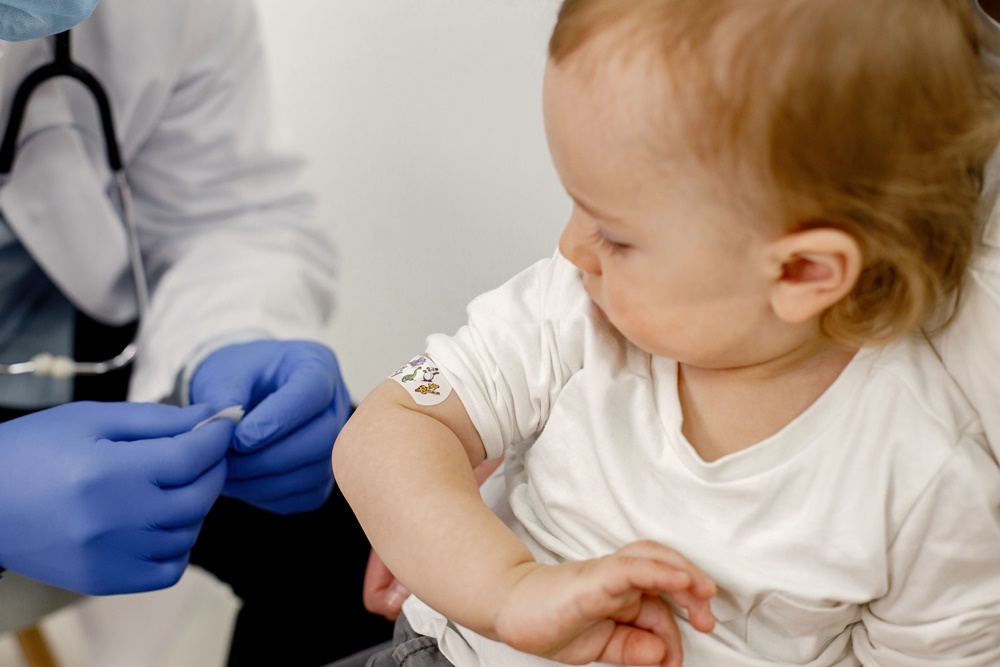UK worst in G7 for MMR vaccination, as 30m children not fully immunised

The UK has recorded the lowest MMR vaccination rate among G7 nations, as nearly 30m children globally are not fully protected against preventable diseases.
New figures show that just 89 per cent of UK children received their first MMR jab in 2024, compared with 96 per cent in Germany, 95 per cent in France, Italy and Japan, and 92 per cent in the US and Canada.
The data points to a wider global vaccination crisis.
More than 30m children are not fully immunised against measles, mumps and rubella, and 14.3m missed out on all routine infant vaccinations.
The MMR vaccine protects against three highly contagious viral infections that can lead to complications such as brain damage, hearing loss and death.
Ephrem Tekle Lemango, chief of immunisation at Unicef, said: “In 2024 alone, over 20 million children globally missed their first measles dose and nearly 12 million missed their second – leaving dangerous immunity gaps that continue to fuel outbreaks.
“Measles is one of the most contagious viruses we face.
“Even small declines in coverage, especially in communities affected by conflict, displacement or weak health systems, can trigger devastating surges.
“To protect every child, we need to reach 95 per cent coverage with two doses in every district, in every country.
“Until we do, millions of children remain at risk of serious illness or death from a disease we have the tools to prevent.”
According to data from the World Health Organization (WHO) and Unicef, measles vaccine coverage rose slightly last year, reaching two million more children than in 2023.
However, immunisation rates declined in some middle- and high-income countries and stalled in many others.
The impact is already being seen. Measles cases in Europe doubled in 2024, while the US recorded its highest case count in three years.
The number of countries with large outbreaks rose from 33 in 2022 to 60 in 2024.
Herd immunity – the level of vaccination needed to stop disease from spreading – requires 95 per cent coverage.
In 2024, more than half of countries in Europe and central Asia failed to reach that level, with nearly a third reporting coverage below 90 per cent.
Montenegro recorded the lowest coverage globally, with just 23 per cent of children receiving their first MMR dose.
Seven countries had rates under 50 per cent.
The challenge extends beyond measles.
Routine childhood immunisation for other diseases also remains below pre-pandemic levels and well short of the 95 per cent needed for herd protection.
While 89 per cent of infants received at least one dose of the DTP vaccine – which protects against diphtheria, tetanus and whooping cough – only 85 per cent completed the full three-dose course in 2024.
Coverage for polio and hepatitis B declined to 93 per cent and 91 per cent respectively.
Dr Hans Kluge, WHO regional director for Europe, said: “Last year alone, nearly 300,000 people got whooping cough in our region, more than a threefold increase on the previous year.
“Meanwhile, over 125,000 caught measles in 2024 – twice as many as 2023,” said
“These are not just numbers, it’s hundreds of thousands of families in anguish because their children are sick, and it could have been prevented.
“Vaccines save lives, and when coverage drops, disease spreads.
“That’s why countries must invest in strong local health systems, ensure vaccines are available and accessible in every neighbourhood, and fight misinformation.”
WHO and Unicef estimate that in 2023 there were around 10m measles cases and over 100,000 deaths.
Without stronger action, experts warn that millions more children risk dying or suffering serious complications from diseases that can be prevented.






